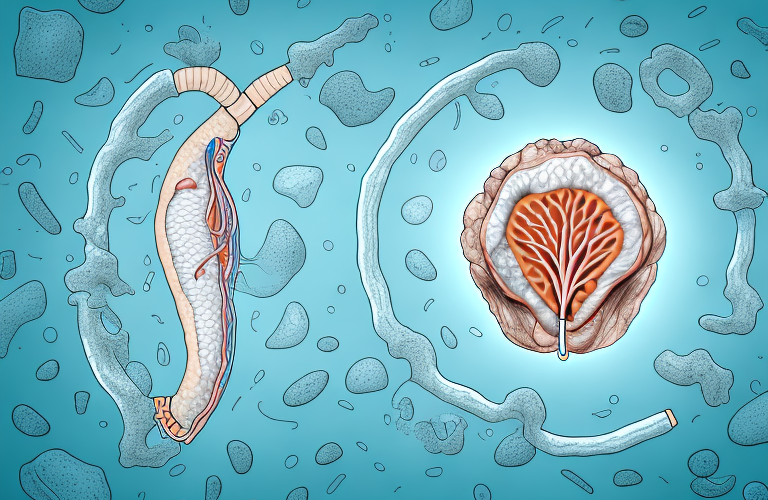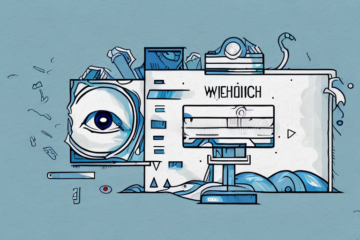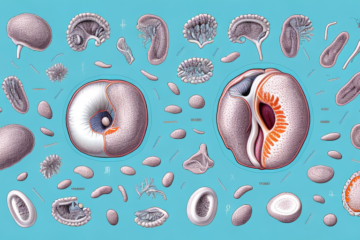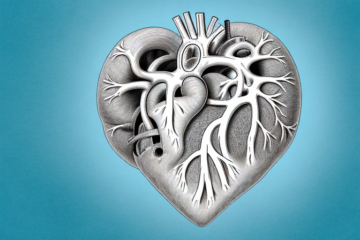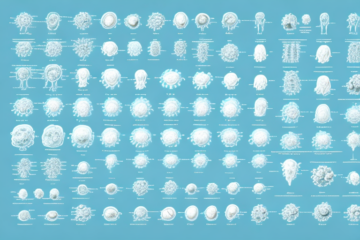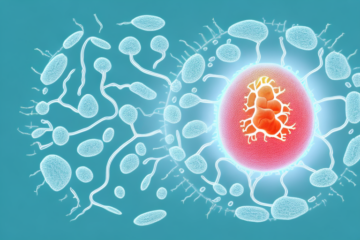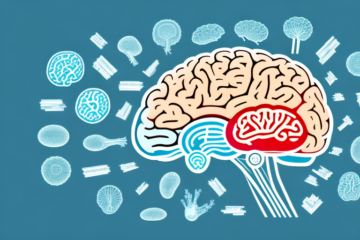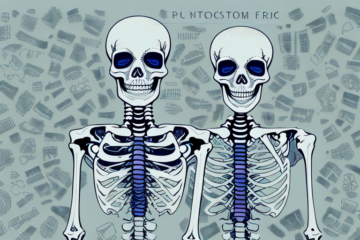Ureteral stones, also known as kidney stones, are small hard mineral deposits that form in the urinary system, particularly in the ureter, the tube that connects the kidney to the bladder. Ureteral stones can cause severe pain and discomfort, especially when they block the flow of urine. In this article, we will discuss symptoms, causes, treatment options, and ways to prevent the formation of ureteral stones.
What are Ureteral Stones?
Ureteral stones are hard deposits made of minerals and salts that can form in any part of the urinary system. The size of stones can range from a grain of sand to a golf ball. When the stones are small enough, they can pass through the urinary tract without causing any symptoms. However, larger stones can cause blockages and lead to severe pain and other complications.
Some common symptoms of ureteral stones include intense pain in the back or side, nausea, vomiting, and blood in the urine. Treatment options for ureteral stones depend on the size and location of the stone. Small stones may be able to pass on their own with the help of pain medication and increased fluid intake. Larger stones may require medical intervention, such as shock wave lithotripsy or surgery, to break up or remove the stone.
Common Symptoms of Ureteral Stones
The most common symptoms of ureteral stones include:
- Severe pain in the back, sides, and lower abdomen
- Painful urination
- Frequent urge to urinate
- Blood in the urine
- Nausea and vomiting
If you experience any of these symptoms, you should seek medical attention immediately.
Ureteral stones are small, hard deposits that form in the kidneys and can cause a blockage in the ureter, the tube that connects the kidney to the bladder. The most common cause of ureteral stones is dehydration, which can lead to the formation of crystals in the urine that eventually become stones.
There are several treatment options for ureteral stones, depending on the size and location of the stone. Small stones may pass on their own with the help of pain medication and increased fluid intake, while larger stones may require surgery or other medical procedures to remove them.
Causes of Ureteral Stones
The formation of ureteral stones is usually due to an imbalance of minerals and salts in the urine. Certain medical conditions, such as kidney disease, hyperparathyroidism, and metabolic disorders, can also increase the risk of developing ureteral stones. Dehydration and a diet high in salt and protein can also contribute to the formation of stones.
In addition to these factors, genetics can also play a role in the development of ureteral stones. Studies have shown that individuals with a family history of kidney stones are more likely to develop them themselves. Other risk factors include obesity, certain medications, and a sedentary lifestyle. It is important to stay hydrated and maintain a healthy diet to reduce the risk of developing ureteral stones.
Risk Factors for Developing Ureteral Stones
Several factors can increase the risk of developing ureteral stones, including:
- Family history of kidney stones
- Previous history of kidney stones
- Dehydration
- Diet high in salt and protein
- Obesity
- Sedentary lifestyle
- Certain medical conditions, such as hyperparathyroidism and inflammatory bowel disease
In addition to the above mentioned risk factors, studies have shown that people who consume high amounts of oxalate-rich foods, such as spinach, nuts, and chocolate, are also at an increased risk of developing ureteral stones. It is important to maintain a balanced diet and stay hydrated to reduce the risk of developing these painful stones.
Types of Ureteral Stones
There are four types of ureteral stones:
- Calcium stones: These are the most common type of ureteral stones. They are made of calcium oxalate or calcium phosphate
- Uric acid stones: These stones form due to high levels of uric acid in the urine, which can be caused by a diet high in purines
- Struvite stones: These stones are caused by a urinary tract infection
- Cystine stones: These stones form due to a genetic disorder that causes high levels of cystine in the urine
It is important to note that the symptoms of ureteral stones can vary depending on the type of stone. Calcium stones may cause severe pain in the back or side, while uric acid stones may cause a burning sensation during urination. Struvite stones can lead to frequent urination and cloudy or foul-smelling urine, while cystine stones may cause recurrent urinary tract infections. It is important to consult a healthcare professional if you suspect you may have a ureteral stone.
Diagnosing Ureteral Stones: Tests and Procedures
If you have symptoms of ureteral stones, your doctor may perform several tests and procedures to diagnose the condition, including:
- Urinalysis: A urine sample is examined for signs of infection and the presence of blood and minerals that could cause stones
- Blood tests: Blood tests can check for high levels of minerals and salts that could contribute to the formation of stones
- Imaging tests: X-rays, CT scans, and ultrasounds can help detect the size, location, and shape of stones
In addition to these tests, your doctor may also perform a physical exam to check for tenderness in the abdomen and back, which can be a sign of kidney stones. They may also ask about your medical history and any medications you are currently taking, as certain medications can increase the risk of developing stones.
If the imaging tests show that you have a stone, your doctor may recommend additional procedures to remove it. These can include shock wave lithotripsy, which uses sound waves to break up the stone, or ureteroscopy, which involves inserting a small scope into the ureter to remove the stone.
Treatment Options for Ureteral Stones
Treatment options for ureteral stones vary depending on the size and location of the stone:
Medications for Ureteral Stones
If the stone is small and can pass through the urinary tract, your doctor may prescribe medication to help manage symptoms. Pain relievers, such as ibuprofen, can help reduce pain and inflammation. Alpha-blockers, such as tamsulosin, can help relax the muscles in the ureter, making it easier for the stone to pass through the urinary tract.
Surgical Procedures for Treating Ureteral Stones
If the stone is large and cannot pass through the urinary tract, your doctor may recommend surgical procedures, such as:
- Extracorporeal shock wave lithotripsy (ESWL): This procedure involves using shock waves to break the stone into smaller pieces that can be passed through the urinary tract
- Ureteroscopy: This procedure involves using a tube with a camera to locate the stone and retrieve it with surgical tools
- Percutaneous nephrolithotomy: This procedure involves making a small incision in the back to remove the stone
In addition to medication and surgical procedures, lifestyle changes can also help prevent the formation of ureteral stones. Drinking plenty of water and avoiding foods high in oxalate, such as spinach and chocolate, can reduce the risk of developing stones. Your doctor may also recommend dietary changes or medications to help prevent the formation of stones in the future.
How to Prevent the Formation of Ureteral Stones
The following tips can help prevent the formation of ureteral stones:
- Stay hydrated by drinking plenty of water
- Avoid foods and drinks that can contribute to the formation of stones, such as soda, coffee, tea, and alcohol
- Eat a balanced diet low in salt and animal protein
- Take medications as directed by your doctor
In addition to the above tips, it is important to maintain a healthy weight and exercise regularly. Obesity and a sedentary lifestyle can increase the risk of developing ureteral stones. It is also recommended to limit the intake of foods high in oxalate, such as spinach, rhubarb, and nuts, as they can contribute to stone formation. If you have a history of kidney stones, it is important to speak with your doctor about a personalized prevention plan.
Complications Associated with Ureteral Stones
If left untreated, ureteral stones can lead to several complications, including:
- Urinary tract infections
- Kidney damage
- Chronic pain
One of the most serious complications of ureteral stones is the risk of kidney damage. If the stone is not removed, it can cause blockage in the ureter, which can lead to swelling and damage to the kidney. This can result in decreased kidney function and even kidney failure if left untreated.
In addition to kidney damage, ureteral stones can also cause chronic pain. The pain can be severe and may require medication to manage. The pain can also interfere with daily activities and quality of life.
When to Seek Medical Attention for Ureteral Stones
If you have symptoms of ureteral stones, you should seek medical attention immediately. If left untreated, the condition can lead to severe pain and other complications.
Some common symptoms of ureteral stones include severe pain in the back, side, or lower abdomen, pain during urination, and blood in the urine. If you experience any of these symptoms, it is important to see a doctor as soon as possible.
Once you seek medical attention, your doctor may recommend imaging tests such as X-rays or CT scans to diagnose the presence of ureteral stones. Treatment options may include pain management, medication to help pass the stones, or in some cases, surgery to remove the stones.
Home Remedies for Managing Symptoms of Ureteral Stones
The following home remedies can help manage symptoms of ureteral stones:
- Apply heat to the affected area to help reduce pain and discomfort
- Drink plenty of fluids to help flush out the stone
- Try over-the-counter pain relievers
In addition to these home remedies, it is important to avoid foods and drinks that can aggravate the condition, such as caffeine, alcohol, and spicy foods. It is also recommended to limit your intake of salt and animal protein, as they can increase the risk of developing more stones. If your symptoms persist or worsen, it is important to seek medical attention to prevent any complications.
Living with Ureteral Stones: Coping Strategies and Lifestyle Changes
If you have a history of ureteral stones, it is important to make lifestyle changes to prevent them from recurring. This includes staying hydrated, maintaining a healthy diet, and taking prescribed medications as directed. You should also follow up with your doctor regularly to monitor your condition and address any concerns.
Ureteral stones can cause severe pain and discomfort, but with prompt medical attention and proper treatment, most people can recover fully. By making lifestyle changes and following simple prevention strategies, you can reduce the risk of developing ureteral stones and lead a healthy, pain-free life.
In addition to lifestyle changes, there are coping strategies that can help manage the pain and discomfort associated with ureteral stones. These include taking over-the-counter pain medications, using heat therapy, and practicing relaxation techniques such as deep breathing or meditation. It is important to discuss these options with your doctor to ensure they are safe and effective for your individual situation.
It is also important to be aware of the signs and symptoms of a potential ureteral stone, such as sudden and severe pain in the back or side, nausea, and vomiting. If you experience any of these symptoms, seek medical attention immediately to prevent complications and ensure proper treatment.

